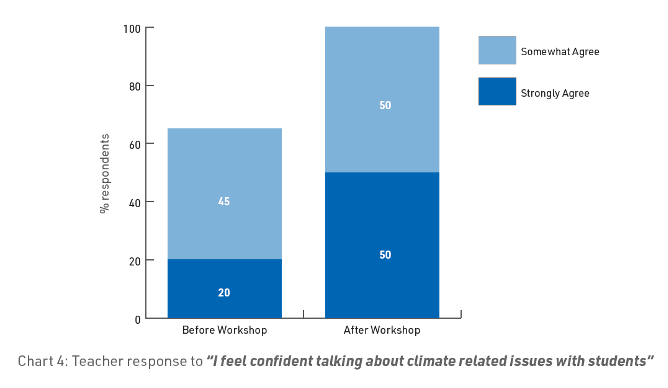by Karla Fallon
One of CLEX’s aims is to promote climate and weather science to secondary school students of STEM (Science, Technology, Engineering, Mathematics) subjects. We do this by bringing together secondary teachers and climate scientists in Climate Classroom workshops that develop teaching resources using climate science that can be used in the Australian secondary school curriculum. The workshops give teachers the confidence to use climate science examples in their classes and enable climate scientists to contribute to increasing the climate science literacy of the next generation.
In February 2021, a Climate Classrooms workshop was delivered over Zoom by the ARC Centre of Excellence for Climate Extremes (CLEX) in partnership with the Monash Climate Change Communication Research Hub (MCCCRH) and the Australian Meteorological and Oceanographic Society (AMOS). The workshop brought together 30 educators and 12 climate scientists to work collaboratively on resources for some key curriculum areas. The educators were from a variety of career stages, including school leaders, curriculum managers and STEM learning specialists, and taught across four states NSW, Queensland, Victoria and Western Australia.
To measure the success of the workshop, participants were asked to complete an evaluation survey before the workshop. This assessed their confidence in relation to finding climate-related resources, making their own resources and speaking to their students about climate science. Following the workshop, participants then completed a survey that included the same measures, so we could identify the workshop’s impact. The responses suggested the workshop was a great success, with 100% of educators reporting that they learned about currently available resources and 95% saying they benefitted from working with the climate scientists.
Using the evaluations from before and after the workshop, we could see that educators reported an increase from 45% to 100% saying they were confident they could find climate-related materials, a rise from 65% to 100% agreeing that they could prepare their own climate science related materials, and an increase from 65% to 100% agreeing that they felt confident talking about climate science with their students.

The educators and scientists also commented positively and in more detail as part of the post-workshop survey. Some examples include:
I found the Climate Classroom workshop invaluable. As a Science teacher, I know how important it is for students to gain an understanding of both the mechanisms of climate change and implications of this on their own future. Working with other teachers as well as experts in the field allowed me not only to collaborate in making a useful lesson plan but also opened my eyes to a range of resources already available. I was able to take knowledge of these resources back to my science teaching colleagues who are already using them in lessons
Katrina Holewa, Science and Geography teacher
It was so great to meet these equally passionate secondary teachers and to facilitate the passing on of some knowledge directly using real-world scientific data and tools. We have great mutual respect for each other’s expertise, and I hope this is a blueprint for future collaborations between professional scientists and school teachers. This is an important way for us to continue to break down the barriers which separate facts and data from deep knowledge and understanding.
Dr Ben Henley, University of Melbourne
The teachers I worked with showed a lot of enthusiasm and interest to incorporate climate science into the school curriculum and that made the experience all the more rewarding for me. I am very happy that I participated in this workshop and was able to contribute in some way.
Charuni Pathmeswaran, PhD student UNSW
In addition to the impact on teacher confidence on the day, the workshop is also leading to the development of new teaching resources. For example, a Year 10-11 Maths lesson plan teaches bivariate data analysis through the lens of exploring trends in sea level.
You can find a link to the full workshop evaluation report and more information about the Climate Classrooms workshops and teaching resources on the CLEX School Resources webpage.
